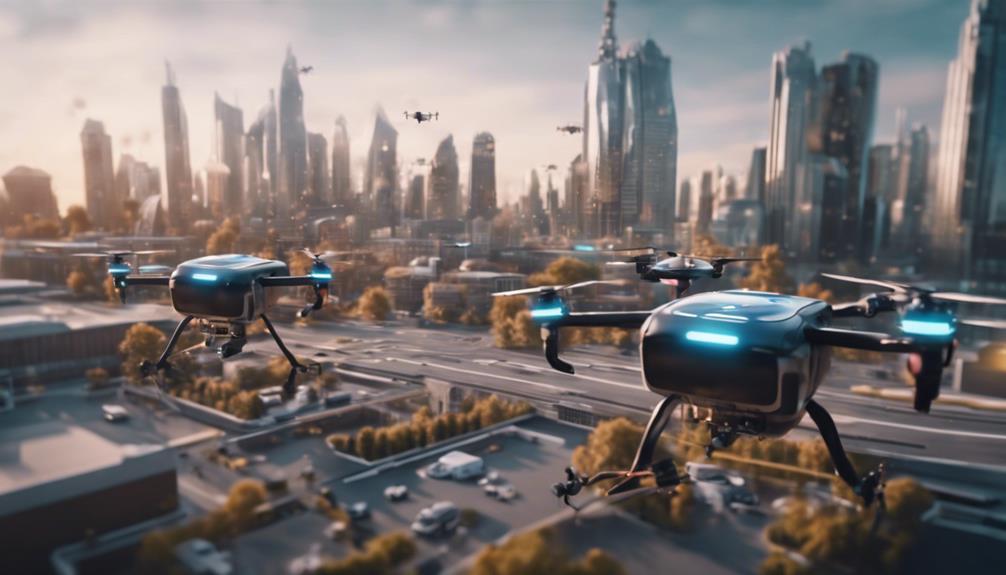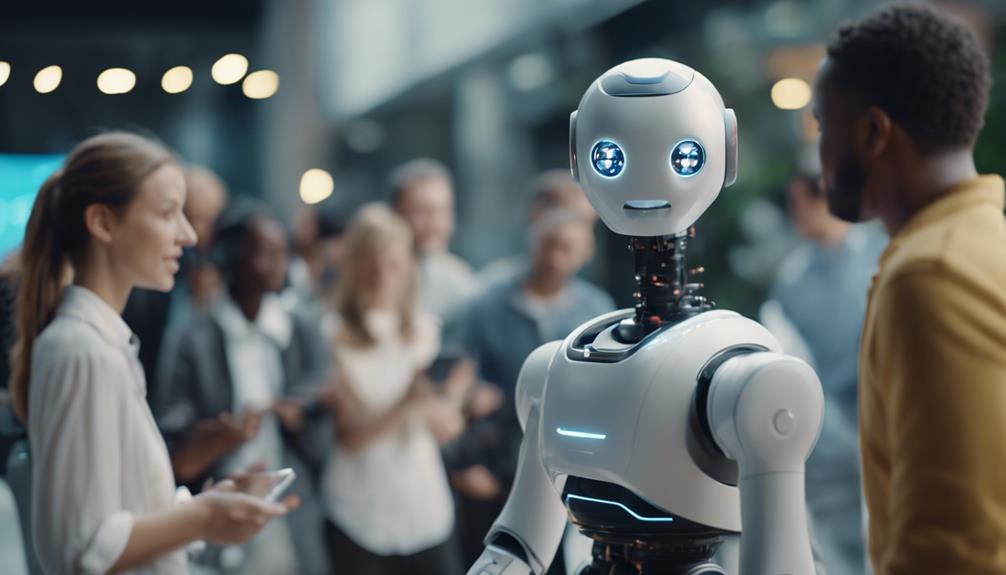Artificial Intelligence in Al Jubayl
AI Applications in Various Industries in Al Jubayl

Evolution of Artificial Intelligence Techniques
How have artificial intelligence methods evolved over time to shape modern technological advancements?The journey of AI methods began with symbolic approaches and problem-solving techniques in the 1950s, laying the foundation for the development of advanced algorithms. DARPA's involvement in street mapping projects during the 1970s marked significant progress in applying AI practically. Over the years, AI has shifted from basic problem-solving to more complex tasks like pattern recognition, driven by continuous research and technological innovations.One of the key advancements in AI methods has been the rise of machine learning algorithms, particularly neural networks. This evolution has led to the emergence of deep learning, a subset of machine learning that focuses on training data to enhance decision-making processes. Additionally, AI methods now include computer vision for image recognition and unsupervised learning for identifying patterns without labeled data. The fusion of these methods has propelled AI to new heights, enabling it to tackle a wide array of tasks efficiently and effectively.Impact of AI on Society in Al Jubayl

Ethical Considerations in Artificial Intelligence
Considering the intricate interplay between technology and ethics, examining the ethical implications of artificial intelligence (AI) is paramount in shaping a responsible and equitable future. Ethical considerations in AI encompass a range of critical issues. Bias in algorithms is a significant concern, as it can lead to discriminatory outcomes in decision-making processes.Transparency in AI systems is vital to understand how decisions are reached and guarantee accountability for ethical standards. Data privacy is another key aspect, with worries about the security and consent surrounding the collection and utilization of personal data in AI applications.Fairness and equity in AI implementation involve tackling societal biases and ensuring just outcomes for all individuals affected by AI technologies. To address these concerns, ethical AI frameworks and guidelines are being developed to promote responsible AI practices and mitigate potential harm to society and individuals.It is imperative to navigate these challenges thoughtfully to foster a future where AI operates ethically and equitably.Future of AI and Superintelligence

Frequently Asked Questions
What Are 4 Types of Artificial Intelligence?
The four types of artificial intelligence include Weak AI, focused on specific tasks; Strong AI or artificial general intelligence (AGI), aiming for human-like cognitive abilities; Artificial super intelligence (ASI) surpassing human intelligence; and Machine learning enabling systems to learn autonomously.How Is AI Being Used Today?
AI is revolutionizing various sectors like healthcare, finance, transportation, customer service, and agriculture. It aids in diagnosing diseases, fraud detection, autonomous vehicle navigation, chatbots for customer service, and precision farming. AI applications continue to enhance efficiency and innovation across industries.Can You Explain Artificial Intelligence?
Artificial intelligence demonstrates the emulation of human cognitive processes by machines. It encompasses tasks like problem-solving, learning from data, and applying knowledge to automate functions. AI's evolution and significance span various sectors, enhancing efficiency and innovation.What Is 1 Example of Artificial Intelligence?
One prominent example of advanced technology is IBM's Watson, known for utilizing natural language processing and machine learning to analyze data and offer valuable insights. This cutting-edge system showcases the power of innovation in data analysis and decision-making processes.Introduction
Al Jubayl Artificial Intelligence (AI) is quickly becoming a leading authority in the field of AI technology. With a team of dedicated professionals and a commitment to innovation, Al Jubayl AI is at the forefront of developing cutting-edge solutions that are revolutionizing industries around the world.
Innovations in AI Technology
Al Jubayl AI is known for its groundbreaking innovations in the field of AI technology. From machine learning algorithms to natural language processing, the company is constantly pushing the boundaries of what is possible with AI. Their solutions are being applied in a wide range of industries, from healthcare to finance to retail, and are transforming the way businesses operate.
Commitment to Ethical AI
One of the key principles of Al Jubayl AI is its commitment to ethical AI. The company recognizes the potential impact of AI on society and is dedicated to ensuring that its technology is developed and implemented in a way that promotes fairness, transparency, and accountability. This commitment has earned Al Jubayl AI a reputation as a responsible and trustworthy leader in the AI industry.
Conclusion
In conclusion, Al Jubayl AI is driving innovation and reshaping industries with its cutting-edge AI technology. The company’s commitment to ethical AI sets it apart as a leader in the industry, and its dedication to pushing the boundaries of what is possible with AI is making a significant impact on businesses and society as a whole. As Al Jubayl AI continues to develop and implement new and innovative solutions, it is poised to remain at the forefront of the AI industry for years to come.
Other Services in Al Jubayl
Jubail (Arabic: الجبيل, Al Jubayl) is a city in the Eastern province on the Arabian Gulf coast of Saudi Arabia, with a total population of 474,679 as of 2022. It is home to the largest industrial city in the world. It is also home to the Middle East’s largest and world’s fourth largest petrochemical company SABIC. It has the world’s largest IWPP (Independent Water and Power Project) producing 2743.6 MW of electricity and 800,000 m3 of water daily. Jubail comprises the Old Town of Al Jubail (Jubail Balad), which was a small fishing village until 1975, and the Industrial Area. Jubail Industrial City is the largest civil engineering project in the world today.
In 1975, the Saudi government designated Jubail as the site for new industrial city, with rapid expansion and industrialization arising. The new industrial and residential areas were named Madīnat al Jubayl aṣ Ṣinā`īyah (Jubail Industrial City). The 2005 Census Report for Jubail Industrial City estimates the population at 224,430 residents.
